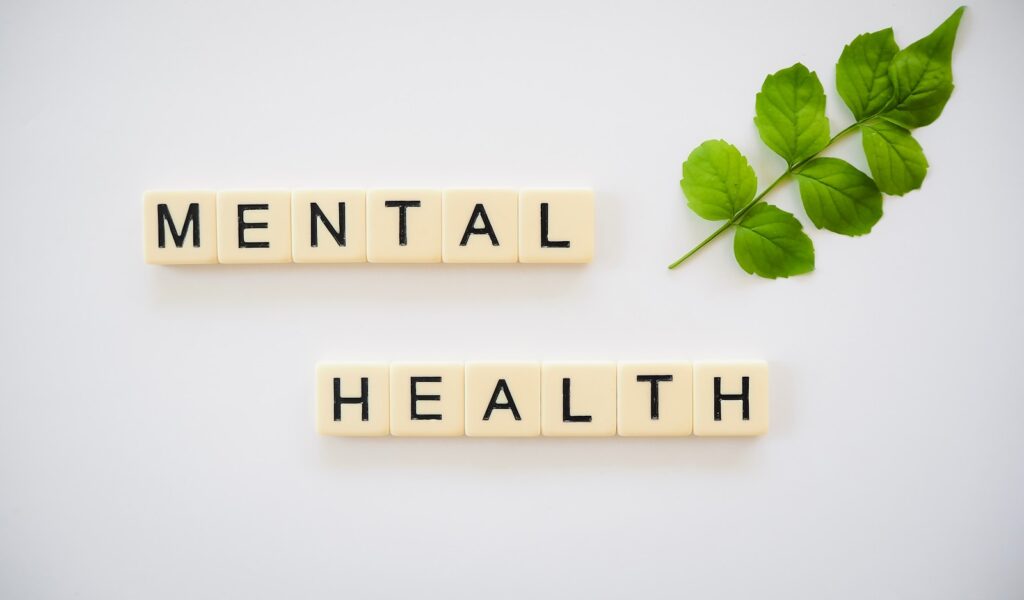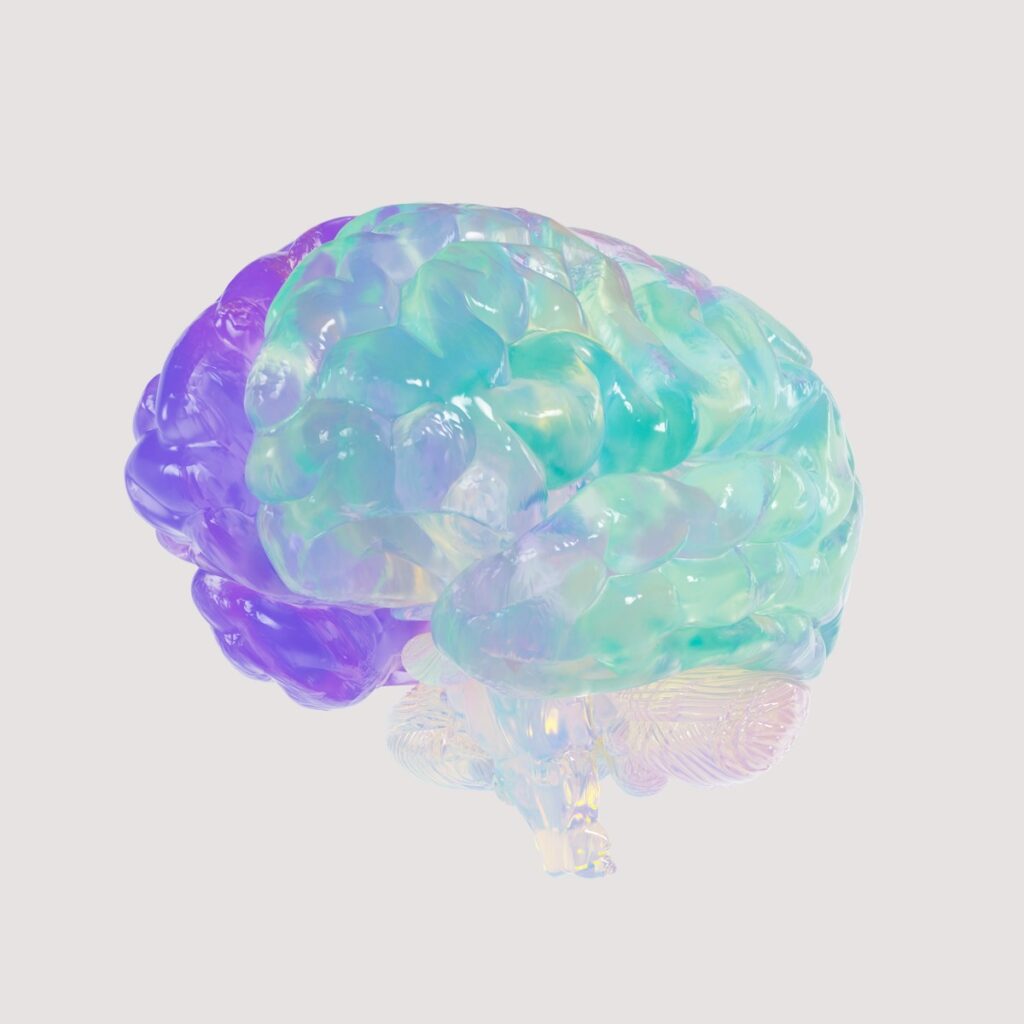Ever find yourself staring blankly at your car keys, wondering where on earth you left them, or drawing a complete blank on a name you *just* heard? Or maybe you’re zoning out during an important meeting, your mind drifting despite your best efforts. If any of this sounds familiar, take a deep breath – you are absolutely not alone. Everyone experiences those moments of forgetfulness and fleeting focus from time to time, regardless of how busy or how young you are.
But here’s the thing: while occasional memory lapses are common, maintaining your brain health is just as crucial as looking after your heart or your joints. It’s a lifelong commitment that can be the key to staying independent and active well into your golden years. More importantly, nurturing your cognitive function is vital for reducing your risk of serious conditions like dementia and Alzheimer’s disease, which, let’s be real, become more prevalent as we age. Your brain is your ultimate processing unit, and keeping it sharp means a better quality of life and the ability to fully engage with the world around you.
So, what if we told you there are practical, science-backed strategies you can start implementing today to boost your memory and sharpen your focus? Forget those fleeting fads; we’re talking about simple, effective ways that actually make a difference. We’ve gathered some truly insightful tips from the pros, backed by academic research and medical journals, to help you reclaim your mental edge. Let’s dive into these game-changing habits that will have your brain thanking you.

1. **Prioritize Quality Sleep**Sleep isn’t merely a luxury or a passive state; it’s the biological foundation for pretty much everything your brain does, from attention and emotional regulation to, you guessed it, memory formation. Your brain gets down to some of its most important work while you’re catching Zs, especially when it comes to memory consolidation. This is the crucial process where your brain takes all the information, experiences, and learnings from your day and files them away into long-term storage, making them accessible later.
Without enough quality sleep, your ability to focus, form new memories, and even regulate your emotions takes a sharp nosedive. Think about those days you’re running on fumes – every task feels harder, and your concentration is shot. Over time, consistent sleep deprivation isn’t just about feeling groggy; it significantly increases your risk of cognitive decline, persistent brain fog, and can even contribute to long-term neurological issues. As Johann Hari so aptly puts it in ‘Stolen Focus,’ “If you want to be able to focus, you need to sleep. It’s not optional. It’s the foundation.” It’s hard to argue with that logic!
To make getting enough healthy sleep a priority, consider adopting some simple sleep hygiene habits. Sticking to a consistent bedtime and wake time, even on weekends, can regulate your body’s internal clock. Also, try to avoid screens and caffeine at least 30 minutes before bed; blue light from devices can mess with your natural sleep cycle. Creating a calming, dark, and quiet environment in your bedroom can also make a huge difference in the quality of your rest.
Neuroscience research actually shows that deep sleep plays a critical role in memory consolidation, actively moving short-term information into long-term storage. This means that a full night’s rest isn’t just downtime – it’s where your brain actively processes, sorts, and solidifies everything you’ve encountered. So, the next time you’re tempted to burn the midnight oil, remember: investing in a good night’s sleep isn’t time lost, it’s where your sharpest focus and best memory truly begin.
Read more about: 13 Powerful Ways to Declutter Your Mind and Quiet Anxiety in Just 15 Minutes

2. **Embrace Daily Physical Activity**When we talk about physical activity, most of us immediately think about toned muscles and a healthy heart, right? But here’s a secret: moving your body does so much more than just improve your physical health. It’s a fantastic way to boost your brainpower too! Regular exercise dramatically increases blood flow to your entire body, and yes, that includes your brain. This enhanced circulation helps keep your memory sharp and supports your overall cognitive health, ensuring your grey matter is getting all the oxygen and nutrients it needs to perform at its peak.
Beyond the physiological benefits, staying active is a powerful antidote to stress and a fantastic mood lifter. And guess what? Both stress reduction and an uplifted mood are absolutely crucial for maintaining focus and staying mentally agile. When you’re less stressed and feeling happier, your brain is simply in a better state to learn, remember, and concentrate. The best part? You don’t need to be hitting the gym for grueling workouts every single day to reap these amazing benefits.
There are plenty of simple, totally doable ways to integrate more activity into your daily life. Why not take a brisk walk around the block or at your local park each day? Even a few 10-minute walks spread throughout your day can be incredibly effective if you don’t have time for a full workout. You could also try adding strength training to your routine a couple of times a week, or explore low-impact activities like yoga, dancing, or even just regular stretching to keep your body moving and flexible.
The real magic lies in consistency. A little movement every day, consistently applied, goes a surprisingly long way in keeping both your body and your brain in magnificent shape. So, lace up those sneakers, put on some tunes, and get moving — your memory, mood, and focus will seriously thank you for it!
Read more about: 13 Powerful Ways to Declutter Your Mind and Quiet Anxiety in Just 15 Minutes

3. **Fuel Your Brain with a Healthy Diet**Think of your brain as a high-performance engine; it uses a significant amount of energy, and just like any engine, it needs the right kind of fuel to run clearly and efficiently. What you eat isn’t just about fueling your body; it’s about directly fueling your brain too! A healthy, balanced diet supports optimal cognitive health, gives your mood a welcome boost, and helps prevent mental decline as you age. The right dietary choices can also protect against inflammation and stabilize your blood sugar, both of which are strongly linked to better memory and improved focus.
Want to give your memory and focus a delicious edge? Start incorporating more of these brain-boosting superstars into your meals. Leafy greens like spinach and kale are packed with folate and vitamin K, essential nutrients for brain health. Blueberries are antioxidant powerhouses, supporting better communication between your neurons. Whole grains provide a steady supply of energy, which means more stable blood sugar levels and consistent brain power throughout your day. And don’t forget omega-3 fatty acids, found in fatty fish like salmon, walnuts, and flaxseeds; these are crucial for your brain’s structure and function.
Here’s a simple, real-world tweak to kickstart your brain-friendly eating: instead of reaching for that sugary cereal in the morning, try a bowl of oatmeal topped with walnuts and a handful of blueberries. It’s a robust, brain-boosting breakfast that will keep you energized and focused. While a healthy diet is paramount, certain supplements like magnesium and B12 might also offer support, especially if recommended by your healthcare provider.
Just as important as what you *should* eat is what you might want to limit. Heavily processed snacks and sugary treats might offer a momentary burst of flavor, but over time, they can negatively impact your brain health, contributing to inflammation and unstable blood sugar that can hinder your cognitive abilities. Prioritize wholesome, nutrient-dense foods, and watch your mind thank you with improved clarity and recall.
Read more about: Beyond Genetics: Unlocking the 15 Surprising Habits of People Who Thrive Past 100

4. **Engage in Mental Stimulation**Just like your muscles need regular workouts to stay strong and functional, your brain thrives on consistent mental exercise to stay sharp. Daily mental stimulation isn’t just about passing the time; it actively supports your memory, improves overall cognitive function, and can even delay age-related cognitive impairment. The more you challenge your brain with new information and complex tasks, the more it adapts and grows, a phenomenon known as neuroplasticity – your brain’s incredible ability to rewire and strengthen its connections.
So, how can you give your brain a good workout? There are countless fun and engaging ways to do it! Try diving into crossword puzzles, Sudoku, or other brain games. These aren’t just for downtime; they’re excellent at improving cognitive function and problem-solving skills. You could also challenge yourself by memorizing poems, names, or short lists, actively training your recall abilities. Don’t shy away from strategy games like chess or card games, or even trivia nights, as they compel you to think critically and strategically.
Another powerful technique is practicing mnemonic devices, which are basically clever memory aids. Think acronyms, rhymes, or visual memory hooks that help you associate new information with something familiar. For instance, if you’re trying to remember someone named Lily, you might create a vivid mental image of a beautiful lily flower in their hair. As Joshua Foer eloquently states in ‘Moonwalking with Einstein,’ “What makes things memorable is that they are meaningful, significant, colourful.” The more vivid and meaningful your connection, the stronger and more accessible your memory will be.
Beyond puzzles and memory tricks, consider picking up an entirely new hobby, like learning to paint, mastering a musical instrument, or even tackling a new language. These activities force your brain to create new neural pathways and expand its horizons. You can also explore the many brain-training apps available on your phone or tablet, designed specifically to enhance memory and mental agility. The key is to keep learning, keep challenging, and keep growing – because a busy brain is a healthy, happy brain!
Read more about: 13 Powerful Ways to Declutter Your Mind and Quiet Anxiety in Just 15 Minutes

5. **Cultivate Social Connections**You might not immediately connect socializing with memory and focus, but trust us, it’s a powerful link! Spending time with others and engaging in meaningful social interactions actually plays a crucial role in safeguarding your cognitive health. Social interaction is a fantastic way to ward off feelings of depression and stress, and both of those unwelcome guests can significantly contribute to memory loss and reduced focus. When you’re feeling connected and supported, your nervous system is simply calmer, creating a better environment for your brain to thrive.
Make a conscious effort to look for opportunities to get together with your loved ones, friends, and other people in your community, especially if you happen to live alone. It could be as simple as a regular coffee date, joining a book club, or volunteering for a local cause. The act of engaging in conversation, sharing experiences, and problem-solving with others stimulates various parts of your brain, keeping it active and engaged.
Remember that little phrase, “relationships matter”? It’s not just a feel-good sentiment; it’s a scientific truth for your brain. Picking up the phone for a chat, saying yes to that invitation, or actively participating in a group provides mental stimulation and emotional support that bolsters your overall well-being. This sense of community and belonging reduces feelings of isolation, which can be detrimental to mental health and, by extension, cognitive function.
When you foster strong social bonds, you’re essentially giving your brain a continuous workout in empathy, communication, and processing complex social cues. This rich social tapestry helps reduce anxiety and fosters emotional resilience, allowing your brain to allocate its precious resources to memory formation and sustained focus, rather than being overwhelmed by stress. So, go ahead, connect with someone today – your brain will genuinely thank you for the delightful conversation and boosted brainpower!
Read more about: 13 Powerful Ways to Declutter Your Mind and Quiet Anxiety in Just 15 Minutes

6. **Master Organizational Skills**Have you ever frantically searched for your car keys only to find them exactly where you always put them, or struggled to remember an appointment because your calendar is a mess? It’s incredibly frustrating, and it highlights a simple truth: you’re far more likely to forget things if your home is cluttered, your digital files are in disarray, or your notes are a jumbled mess. A disorganized environment often leads to a disorganized mind, making it harder to retrieve information when you need it most.
One of the simplest yet most effective ways to sharpen your memory and focus is to master your organizational skills. Start by consistently tracking your tasks, appointments, and other important events in a dedicated notebook, a physical calendar, or an electronic planner. The act of writing things down (or typing them in) already helps commit them to memory. For an extra boost, try repeating each entry out loud as you write it down; this engages multiple senses and reinforces the information in your brain.
Beyond just planning, cultivate the habit of keeping your to-do lists up to date, and make sure to check off items as you finish them – that sense of accomplishment is also a great motivator! To combat the perennial “where did I put that?” dilemma, designate a set place for essential items like your wallet, keys, glasses, and phone. When everything has a home, you drastically reduce the mental load of searching, freeing up your brain’s resources for more important cognitive tasks.
Crucially, organizational skills also extend to how you manage your attention. Try to limit distractions and consciously avoid doing too many things at once. If you can focus intensely on the single piece of information or task that you’re trying to remember, you are exponentially more likely to recall it later. It can also be incredibly helpful to connect what you’re trying to remember to a favorite song, a familiar saying, or a vivid idea – creating those mental hooks makes retrieval much smoother. Getting organized isn’t just about neatness; it’s about creating a clear pathway for your mind to access and retain information.
Read more about: 15 Road Trip Hacks That Will Save Your Sanity and Your Wallet

7. **Practice Mindful Focus**In our increasingly chaotic world, cultivating mindful focus is like finding a superpower for your brain. Mindfulness is essentially the daily practice of gently noticing your thoughts, feelings, and sensations, and then consciously returning your attention to what truly matters in the present moment. It’s a fantastic way to train your attention muscle, support emotional balance, and even activate regions of the brain directly tied to memory and learning. Studies have consistently shown that practicing mindfulness can significantly boost concentration and even reduce symptoms often associated with anxiety and ADHD.
Here’s a common misconception: mindfulness isn’t about trying to empty your mind or stop thinking altogether (good luck with that!). Instead, it’s about developing the skill to gently choose what you pay attention to, and when your mind inevitably wanders (because it will!), bringing it back without judgment. As Johann Hari sagely observes, “You can only be conscious of one or two things at a time. That’s the nature of attention.” This simple truth underscores the importance of intentional focus in a world constantly vying for your mental bandwidth.
Ready to give it a try? Here are three incredibly simple ways to start practicing mindful focus today. Before you even open your laptop in the morning, take three slow, deliberate breaths, noticing the sensation of air entering and leaving your body. Or, commit to eating just one meal a day without any screens or other distractions, truly savoring each bite and the experience of eating. Another wonderful practice is to take a short stroll outside and simply focus on all the sounds around you, noticing every rustle, chirp, and distant hum.
Consider using a “sensory anchor” to help ground yourself: feel your feet firmly on the ground as you breathe, bringing your awareness back to your body. This act of grounding the body powerfully grounds the mind. Even a mere 60-second pause before diving into your workday can dramatically shift your mindset from reactive to intentional. We heard from one university student managing ADHD who started using a simple grounding ritual before studying: a deep breath, a sip of water, and a quiet affirmation like “I’m here now.” Within just two weeks, she reported significantly less screen-scrolling, a greater sense of presence, and surprisingly, fewer headaches. If staying focused feels incredibly hard, remember, you’re not broken – you’re simply untrained. These small, consistent moments of mindful presence are how you rebuild that essential mental muscle of focus, one breath, one choice, one return to the present moment at a time.
Okay, so we’ve already covered some seriously foundational habits for boosting your brainpower – think of them as your mental health non-negotiables. But what if we told you there are even more layers to peel back? More advanced techniques and crucial preventative measures that can truly elevate your cognitive game? We’re diving into exactly that in this next section, tackling everything from smart brain breaks to recognizing when it’s time to call in the pros. Get ready to supercharge your memory and focus like never before!
Before we jump into these next-level strategies, let’s have a quick chat about some sneaky habits that might be quietly sabotaging your efforts. Things like constant multitasking, not getting enough shut-eye (we *know* we just talked about sleep, but it bears repeating!), poor nutrition, chronic stress, and that ever-present social media overload can really mess with your mental flow. The good news is, by consciously avoiding these pitfalls and layering in our next set of tips, you’re not just improving your memory; you’re building a fortress around your brain health.
Read more about: 13 Powerful Ways to Declutter Your Mind and Quiet Anxiety in Just 15 Minutes

8. **Embrace Strategic Brain Breaks**Ever felt like you’re just hitting a wall, staring at your screen but absolutely nothing is sinking in? We often get caught in this productivity trap, thinking that more output equals more productivity. But here’s the scoop: your brain isn’t wired to work nonstop, like some kind of perpetual motion machine. Your prefrontal cortex, that superstar part of your brain responsible for focus and decision-making, actually gets tired out over prolonged effort. Without giving it some much-needed recovery time, your attention will inevitably waver, mistakes will creep in, and yes, your precious memory will suffer.
That’s exactly where strategic micro-breaks swoop in like a superhero. These aren’t just an indulgence; they’re a vital part of your cognitive strategy. Think about it: even a mere five minutes of stepping away for fresh air, doing a quick stretch, or simply closing your eyes can work wonders. These short pauses are like hitting the reset button on your nervous system, allowing it to recalibrate and bringing back a fresh wave of mental clarity.
As Nir Eyal, the brilliant author of ‘Indistractable,’ so accurately explains, “Being indestructible isn’t about never being distracted. It’s about being able to get back on track.” This isn’t about avoiding distractions entirely, which, let’s be real, is nearly impossible in our digital age. It’s about building the resilience to recognize when your focus is slipping and having a deliberate plan to reel it back in.
Imagine your brain not as a marathon runner that just keeps going, but more like a sprinter – it performs at its absolute peak in short, powerful bursts followed by quick, effective recovery periods. We heard from a Headway reader who absolutely nailed this concept; she shared that simply setting a timer for a regular “tea and breath” break every 90 minutes made a massive difference. Not only did she feel less overwhelmed, but she also ended her workday with significantly more energy and, crucially, a sharper mind.
These small, intentional breaks don’t slow you down; quite the opposite! They’re designed to sharpen your attention for whatever important task comes next. By giving your brain these regular pit stops, you’re allowing it to consolidate information, clear out mental clutter, and come back stronger, more focused, and ready to tackle anything. It’s an investment in sustainable productivity and lasting cognitive vitality.
Read more about: 13 Powerful Ways to Declutter Your Mind and Quiet Anxiety in Just 15 Minutes

9. **Proactively Manage Stress**We often talk about stress as something that makes us feel overwhelmed or anxious, but did you know it actually physically *changes* your brain? Chronic stress isn’t just an unpleasant feeling; it’s a powerful force that can literally rewire your brain’s structure. When you’re under persistent pressure, your system gets flooded with cortisol, the body’s primary stress hormone. Over time, this constant deluge of cortisol can actually cause your hippocampus – the brain’s essential memory center – to shrink, and it can weaken your prefrontal cortex, which is responsible for critical functions like decision-making and impulse control.
This brain rewiring, a truly unsettling consequence of unmanaged stress, can lead to a host of cognitive struggles. You might experience frustrating memory issues, a pervasive sense of brain fog that just won’t lift, or a significant drop in concentration. Emotional reactivity can also increase, making it harder to regulate your feelings, and you might find it increasingly difficult to learn new things or retain fresh information. It’s a cascade of negative effects that directly impacts your ability to think clearly and effectively.
That’s precisely why proactively managing stress isn’t just about feeling better; it’s a core, non-negotiable component of improving your focus and protecting your long-term cognitive health. When your brain is constantly stuck in survival mode, it can’t efficiently allocate its resources to crucial processes like memory formation and sustained attention. Bringing your nervous system back into balance frees up your mental energy for what truly matters.
So, what are some practical, daily strategies you can employ to dial down that stress? It can be simpler than you think! Try incorporating a free-writing journaling session before bed; getting those swirling thoughts out onto paper can be incredibly therapeutic. Or, start your day with a few deep breaths and some gentle stretches – a tiny ritual that signals to your body that it’s safe to relax. Another fantastic tip: replace that habitual ‘doom-scrolling’ with a short, refreshing walk or a few minutes of quiet, screen-free time.
Even integrating just one of these small rituals into your daily routine can make a profound difference, helping to bring your nervous system back into a calmer, more balanced state. Remember, a less stressed brain is a brain that’s better equipped to remember, learn, and maintain sharp focus. It’s not just about managing emotions; it’s about safeguarding the very architecture of your mind.
Read more about: 13 Powerful Ways to Declutter Your Mind and Quiet Anxiety in Just 15 Minutes

10. **Conquer Digital Distractions**Let’s be honest: in today’s hyper-connected world, digital distractions are everywhere. They’re like tiny, insistent little sirens, constantly vying for your attention. While our devices offer incredible convenience, they also present a unique challenge to our memory and focus. The constant barrage of notifications, endless feeds, and the sheer volume of information can subtly, yet powerfully, erode our ability to concentrate deeply and recall information effectively. It’s a phenomenon that some experts are even calling “digital dementia,” where excessive screen time and reliance on technology can lead to cognitive impacts.
Think about it: constantly switching between apps, scrolling through social media, and bouncing from one notification to the next trains your brain to expect constant stimulation. This, unfortunately, shortens your attention span, making it harder to engage with any single task for an extended period. And it’s not just social media; even habitual reliance on GPS, while convenient, has been shown to negatively impact our spatial memory during self-guided navigation. Our brains thrive on exploration and problem-solving, and offloading these tasks entirely can have unforeseen consequences.
Even something as seemingly innocuous as the light from your screens can mess with your cognitive functions, especially when it comes to sleep. Blue light emitted by devices can disrupt your natural sleep cycle, making it harder to fall asleep and reducing the quality of your rest. And as we hammered home in our first section, sleep is absolutely non-negotiable for memory consolidation and sharp focus. So, those late-night scrolling sessions aren’t just costing you sleep; they’re directly impacting your ability to think clearly the next day.
So, what’s a tech-savvy individual to do? The key is conscious intention. Start by creating designated screen-free zones and times. Maybe make your bedroom a no-phone zone an hour before bed, or commit to eating one meal a day without any digital interruptions. Silence non-essential notifications on your phone, or better yet, schedule specific times to check emails and social media instead of letting them constantly interrupt your flow. Remember that university student with ADHD we mentioned? Her grounding ritual helped dramatically reduce screen-scrolling and increased her presence.
By proactively minimizing these digital interruptions, you’re not just creating more quiet time; you’re actively retraining your brain to sustain focus. You’re giving your mind the space it needs to process, synthesize, and store information effectively, rather than constantly reacting to external stimuli. Reclaiming your attention from the digital realm is one of the most powerful steps you can take toward lasting memory improvement and laser-sharp focus.
Read more about: 13 Actionable Ways 5 Famous Writers Conquered Creative Blocks & Boosted Productivity

11. **Proactively Address Chronic Health Issues**When we talk about improving memory and focus, it’s easy to zoom in on brain-specific exercises or dietary tweaks. However, it’s absolutely crucial to remember that your brain doesn’t operate in isolation. It’s intrinsically linked to your overall physical health, and chronic medical conditions can have a surprisingly profound impact on your cognitive abilities. Ignoring underlying health problems isn’t just bad for your body; it can significantly hinder your brain’s performance and increase your risk of cognitive decline.
Conditions like high blood pressure, diabetes, depression, hearing loss, and obesity are not just health concerns in their own right; they are all linked to memory issues and reduced focus. For instance, chronic low-grade inflammation, often a byproduct of conditions like obesity or an unhealthy diet, has been identified as a potential risk factor for dementia. Similarly, structural changes in the brain have been associated with overweight and obesity, impacting its ability to function optimally. Taking control of these conditions is a direct investment in your brain’s future.
This is where your healthcare provider becomes an invaluable ally. Following their advice for managing any medical conditions you may have is paramount. The better you take care of your physical self, the better your memory is likely to be. It’s also incredibly important to regularly review all the medicines you’re taking with your doctor, as some medications can indeed affect memory and cognitive function. What seems like a minor side effect could be a significant barrier to your mental clarity.
Beyond managing existing conditions, prevention is key. Maintaining a healthy weight, controlling blood sugar levels, and ensuring good cardiovascular health through diet and exercise all contribute to a healthier brain. When your body is in balance, your brain receives the optimal blood flow, oxygen, and nutrients it needs, creating the perfect environment for peak cognitive performance. Think of it as creating a stable, supportive ecosystem for your mind to thrive within.
Ultimately, addressing chronic health problems is a comprehensive approach to cognitive well-being. It’s about understanding that every part of your body is interconnected, and nurturing your physical health provides a powerful, protective shield for your brain. By working closely with your healthcare team to keep your body in tip-top shape, you’re building a strong foundation for a sharper memory and unwavering focus, ensuring your brain can function at its best for years to come.
Read more about: 13 Powerful Ways to Declutter Your Mind and Quiet Anxiety in Just 15 Minutes
Remember that empowering truth: small, consistent changes truly make real impacts. You don’t have to overhaul your entire life overnight. Just pick one or two of these strategies that resonate most with you and commit to implementing them daily. Maybe it’s going to bed 30 minutes earlier tonight, taking a 10-minute walk without your phone, or trying a brain-friendly breakfast tomorrow. Each tiny step you take is a powerful investment in a sharper, more focused, and more vibrant you. Your brain is your most incredible asset – let’s keep it humming at its absolute best!




